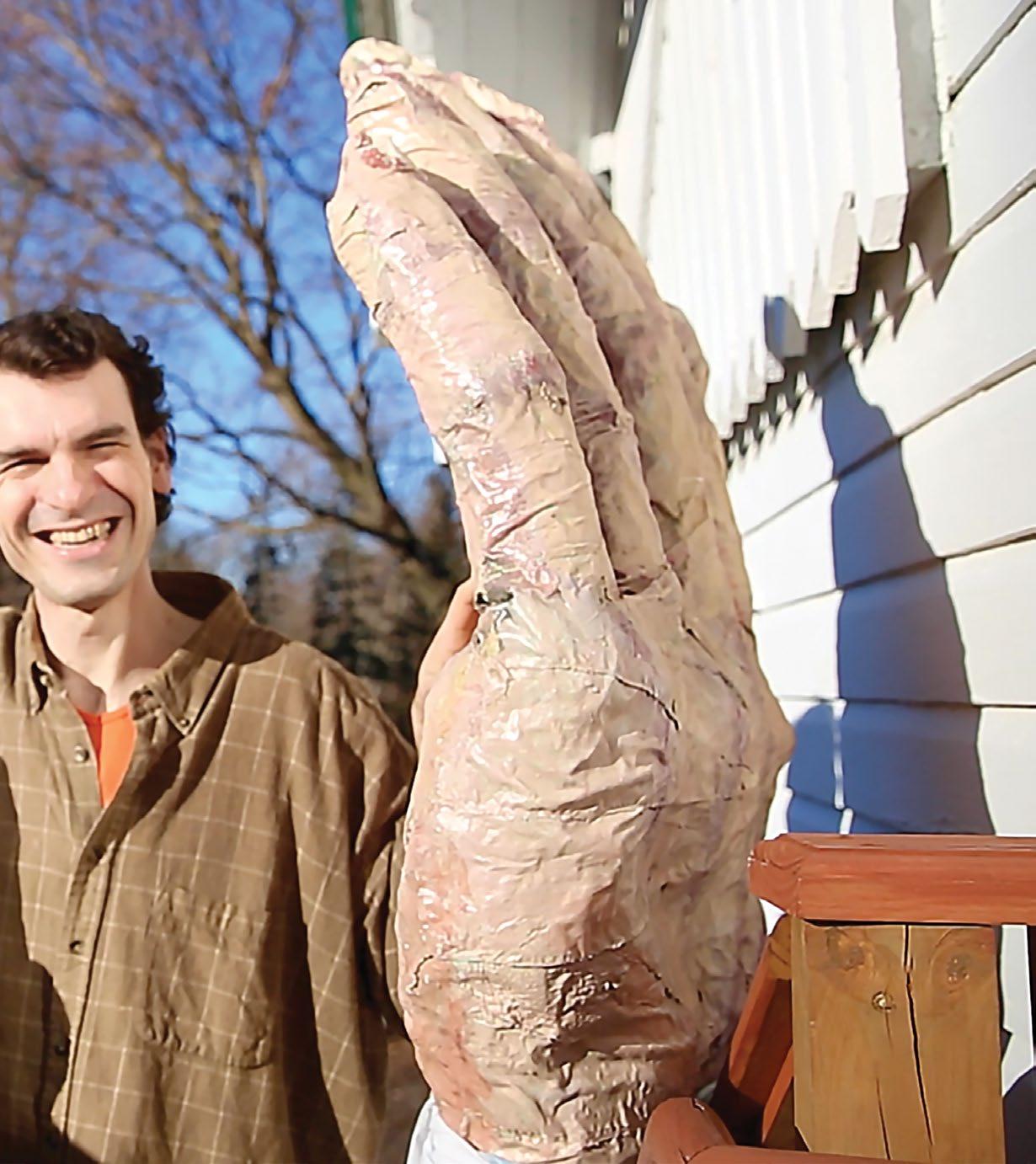
4 minute read
Now West: Kaspar Hauser. A Touchstone for Humanity
by Penelope Baring
When we proposed to our Santa Cruz Monterey Bay Branch of the Anthroposophical Society that we host a Michaelmas festive event on the theme of Kaspar Hauser there were some who asked “Who?” Kaspar Hauser is not as well known in America as one might think. He is certainly well known in the Camphill setting as the patron, in a way, of the handicapped individuality. He is known in the Fellowship Community where Ehrenfried Pfeiffer spoke of him a number of times, based on questions he had asked Rudolf Steiner about this mysterious human being. He is also known in the field of psychiatry, especially concerning child abuse, including the abuse of institutionalization. Books by scholars such as John Money (Kaspar Hauser and Psychological Dwarfism) and Leonard Shengold (Soul Murder) have cited Kaspar Hauser as the first documented account of such abuse and even coined the term “Kaspar Hauser Syndrome.” Plays based on his life and books such as "The New York Trilogy" by Paul Auster have been written. Suzanne Vega has a song called “The Wooden Horse.” Nevertheless Kaspar Hauser has been more or less forgotten in this country.
For this reason, if no other, we at Camphill Communities California decided to host this Michaelmas event, calling it “Now West: Kaspar Hauser.”
Our main speaker was Eckart Böhmer. Eckart is a champion for Kaspar Hauser. His life work has been in his service. This goes back to childhood years when, growing up as the son of a Goethe Institute father, living in one country and culture after another, Eckart felt that his life was saved from depression in mid adolescence through seeing the Werner Herzog film "Kaspar Hauser". Much later, after gaining a degree in theater arts and production, Eckart set up his own theater near the town of Ansbach in Germany, not even realizing at first that this was the very town where Kaspar Hauser lived and died. Kaspar Hauser was murdered at the age of 21, five years after being released from his childhood incarceration. Eckart Böhmer offered to organize a Kaspar Hauser festival for the town, which itself had very little sense for this history. By now, 20 years later, Ansbach has hosted ten Kaspar Hauser Festival events that now draw three and a half thousand people every other August for a week of plays, films, lectures, concerts and tours. And not only for anthroposophists. There are many who are drawn to this mysterious life and death.
Eckart gave us three lectures, which were all deeply researched and contemplated, based both on historical records and on Rudolf Steiner’s indications. He outlined the two crimes that were committed against Kaspar Hauser: There was the exoteric political crime of child abduction when the newborn baby of Stephanie Beauharnais was removed and a dying child put in his place so that the machinations of court politics and power could unfold making sure that he would never inherit the throne of Baden. And there was the esoteric crime, carried out when the child was four years old, when he was put into a dark underground cell without human contact for twelve years.

Eckart Boehmer inside a giant redwood tree.

Eckart described both in great depth and detail. The second crime in particular is of interest to anthroposophists in the light of Rudolf Steiner’s remarks to Ehrenfried Pfeiffer that “if Kaspar Hauser had not lived and died as he did the connection would have been severed between the spiritual world and the earthly.” This has been a long-standing puzzle, since Rudolf Steiner has also said that had he not been abducted and had ascended the throne of Baden, he might have been able to found a Grail Kingdom in southern Germany and fulfill the ideals of the French Revolution by creating a truly threefold governance. How could Kaspar Hauser have both failed and succeeded? Was it so, as Karl König, the founder of Camphill has said, that his actual mission was to be the “Guardian of the Image of God” through the darkly clouded 19th century, during the time when the Christ Being was being suffocated in the etheric sphere by deepening materialism?
This is not the place to outline the entire lecture content. The sixty people who attended were privileged to experience a real spiritual researcher who, in his very being lives and breathes the question I have described. Did Kaspar Hauser fail or did he succeed in what he was meant to do? Eckart has come to insights that are questions in themselves and will continue to unfold.
The whole event was embedded in the experience of the Word. For those who were present on Michaelmas Day, the day of Kaspar Hauser’s birth, we heard an hour of poetry in his name. On the Friday evening Glen Williamson presented his wonderful one-man play “The Foundling Prince.” And on the Saturday evening we experienced a dramatic reading of “…and from the night Kaspar” by Carlo Pietzner. Eckart’s lectures were also dramatic pieces. He spoke in his native German with translation by Richard Steel. Because Eckart is a trained actor and because his heart beats so strongly for his subject we all were glad that he could present in his language, for even those who didn’t understand were deeply moved by the glowing warmth of his words. Eckart’s final plea was: “Be childlike and joyful, filled with wonder.” That is what is needed.
The success of this event has convinced us that Eckart should come again, in October 2018. This should be a big, very public festival that invites many to take part in the ongoing story of Kaspar Hauser.
Penelope Baring (penelope@usbaring.com) lives at Camphill Communities California, in Soquel near Santa Cruz. She has been active in Camphill for many years and represents the General Section of the School for Spiritual Science on its North American Collegium.










